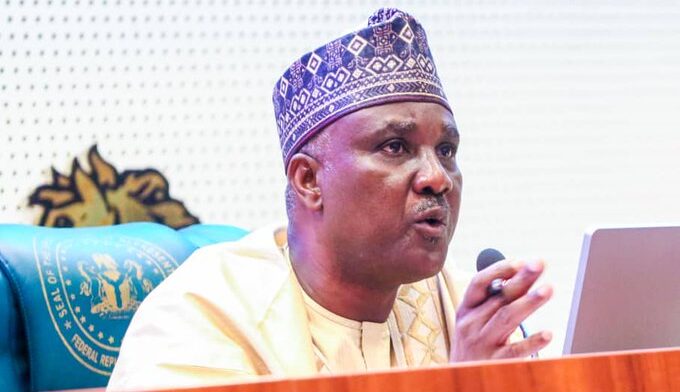SPEAKER of the House of Representatives, Tajudeen Abbas, has warned that Nigeria’s rising debt profile has reached alarming levels, surpassing statutory thresholds and posing grave risks to fiscal sustainability.
News Point Nigeria reports that speaking at the opening of the 11th Annual Conference and General Assembly of the West Africa Association of Public Accounts Committees (WAAPAC) held on Monday at the National Assembly, Abuja, Abbas said the country’s borrowing has “crossed into dangerous territory” and must be urgently addressed.
“As at the first quarter of 2025, Nigeria’s total public debt stood at N149.39 trillion (approximately US$97 billion),” the Speaker disclosed. “This marks a sharp increase from N121.7 trillion the previous year. Even more worrying is our debt-to-GDP ratio of 52 percent, well above the statutory ceiling of 40 percent set by our laws.”
Abbas described the breach of the legal threshold as “a signal of strain on fiscal sustainability”, warning that unless reforms are enacted, Nigeria risks sliding into a full-blown debt crisis.
The Speaker said the issue transcends budgetary concerns and must be recognised as a structural crisis requiring coordinated parliamentary action.
“Across Africa, we are seeing governments spending more on debt servicing than on healthcare and critical social services. Nigeria is not exempt. This is unacceptable and unsustainable,” Abbas cautioned.
He stressed the need for transparent borrowing practices, robust parliamentary oversight, and a collective resolve to ensure that every loan translates into tangible economic and social impact.
As part of Nigeria’s response, Abbas announced plans to champion the creation of a West African Parliamentary Debt Oversight Framework under WAAPAC.
The initiative, he explained, would harmonise debt reporting across the sub-region, establish clear transparency standards, and empower parliaments with real-time data to scrutinise borrowing and spending patterns.
In addition, a regional capacity-building programme for Public Accounts and Finance Committees will be launched to strengthen their ability to conduct debt sustainability analyses and assess fiscal risks.
Abbas further stressed that borrowing must be restricted to projects that bridge infrastructure gaps and support sectors like health, education, and industry.
“Borrowing should support infrastructure, health, education, and industries that create jobs and reduce poverty. Reckless debt that fuels consumption or corruption must be exposed and rejected. Oversight is not just about figures, but about the lives and futures behind those figures,” he said.
The Speaker reaffirmed the 10th House of Representatives’ commitment to accountability and transparency in fiscal management.
Under the House’s Open Parliament Policy, he said, all major borrowing proposals would be subjected to public hearings, while simplified debt reports would be released to citizens to encourage public scrutiny.
The Abuja conference, themed “Strengthening Parliamentary Oversight of Public Debt: The Role of Finance and Public Accounts Committees,” has brought together lawmakers from across West Africa, financial experts, and development partners.
Abbas urged participants to approach the deliberations with seriousness, noting that the resolutions reached would help strengthen fiscal responsibility and safeguard the region from unsustainable debt practices.







